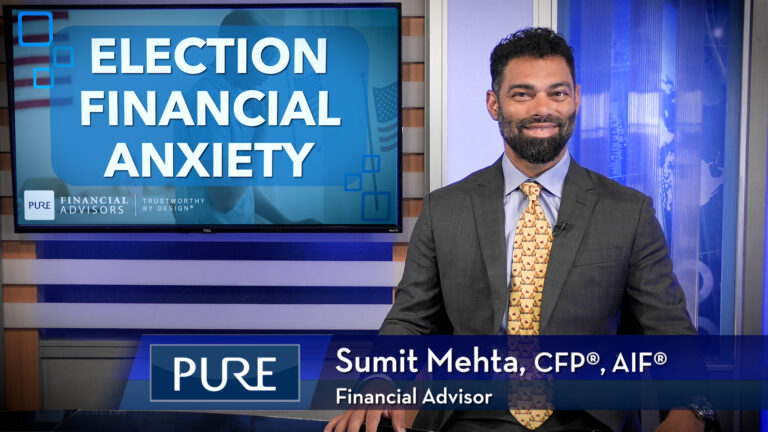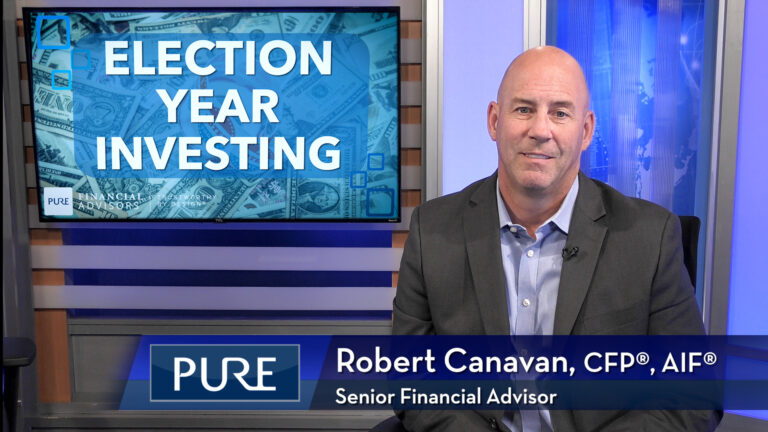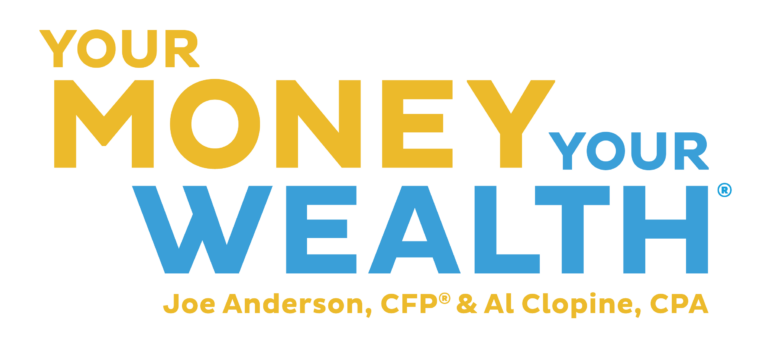The new year creates an opportunity for a fresh start and to build healthy financial habits to improve your likelihood of financial success. Pure’s Financial Planner, William Hodapp, CFP®, CPA, AIF®, covers the basics to help you achieve your financial goals.
- Prepare a net worth and cash flow statement
- Make a budget
- Pay yourself first
- Review your investment strategy
- Review your tax situation
- Get your estate plan in order
FREE GUIDE | Financial New Year’s Resolutions: Tips for Getting Your Finances in Order
Transcript
Building Healthy Financial Habits
The new year creates an opportunity for a fresh start and to build healthy financial habits. Really, you can get these going anytime which should improve your likelihood of financial success.
First, take a personal financial inventory to know where you stand. To do this, prepare a net worth and cash flow statement. Net worth is simply a statement of your assets and liabilities, assets such as your home, other real estate, investments, and bank accounts. And of course, a business if you own one. And then liabilities would be mortgage, car loans, and other liabilities. Cash flow is just a list of what is coming in, your income and what is going out, your expenses. Periodically update both, knowing where you stand is an important first step in making prudent financial decisions.
Second, make a budget. Be sure to not only include recurring items such as rent or house payment, food, and fuel but also non-recurring items like vehicle repairs, home maintenance, clothing, and gifts. Compare your budget vs. actual regularly and adjust as needed.
Third, pay yourself first. Start by contributing at least 10% to your retirement plan (limitations apply) and then setup automatic increases each year of at least 1-2%. Make sure you are contributing enough to reach your goals and maximize any company match; after all, it’s free money.
Four, review your investment strategy. Everyone’s financial situation is unique, so make sure your portfolio is properly allocated and diversified based on your goals, time horizon and risk comfort level. Rebalance regularly – it’s a disciplined way to buy low and sell high. Adjust as your situation changes.
Five, review your tax situation. Taxes are one of the largest expenses for most people so spending time in this area just makes good sense. Do a tax projection each year so that you can take advantage of tax strategies like bunching deductions when appropriate, determine the proper amount of withholdings or estimated tax payments to avoid penalties, and lastly, build a tax-efficient distribution plan (this is for retirees of course) to determine how much to withdraw and from which accounts so you’re not paying more taxes than necessary over your lifetime.
Six, get your estate plan in order, that way assets will go to your intended beneficiaries and your final wishes will be met. If you don’t have a plan start by listing your assets and who will get items like your retirement plans, bank accounts, your home, and personal items such as jewelry. Once complete, then you can meet with an estate planning attorney and discuss if a trust, will and other estate planning documents makes sense. If you already have an estate plan, be sure to meet with your attorney and review your plan periodically so that you can update for any changes. Generally, every 3 to 5 years, sooner if you have a major life change.
Use these items to build healthy financial habits to improve your likelihood of financial success, also seeking the guidance of a certified financial planner could be beneficial in creating a detailed budget that helps you reach your financial goals.
Subscribe to our YouTube channel.
IMPORTANT DISCLOSURES:
• Investment Advisory and Financial Planning Services are offered through Pure Financial Advisors, LLC, a Registered Investment Advisor.
• Pure Financial Advisors LLC does not offer tax or legal advice. Consult with your tax advisor or attorney regarding specific situations.
• Opinions expressed are subject to change without notice and are not intended as investment advice or to predict future performance.
• Investing involves risk including the potential loss of principal. No investment strategy can guarantee a profit or protect against loss in periods of declining values.
• All information is believed to be from reliable sources; however, we make no representation as to its completeness or accuracy.
• Intended for educational purposes only and are not intended as individualized advice or a guarantee that you will achieve a desired result. Before implementing any strategies discussed you should consult your tax and financial advisors.
CFP® – The CERTIFIED FINANCIAL PLANNER™ certification is by the Certified Financial Planner Board of Standards, Inc. To attain the right to use the CFP® designation, an individual must satisfactorily fulfill education, experience and ethics requirements as well as pass a comprehensive exam. Thirty hours of continuing education is required every two years to maintain the designation.
AIF® – Accredited Investment Fiduciary designation is administered by the Center for Fiduciary Studies fi360. To receive the AIF Designation, an individual must meet prerequisite criteria, complete a training program, and pass a comprehensive examination. Six hours of continuing education is required annually to maintain the designation.
CPA – Certified Public Accountant is a license set by the American Institute of Certified Public Accountants and administered by the National Association of State Boards of Accountancy. Eligibility to sit for the Uniform CPA Exam is determined by individual State Boards of Accountancy. Typically, the requirement is a U.S. bachelor’s degree which includes a minimum number of qualifying credit hours in accounting and business administration with an additional one-year study. All CPA candidates must pass the Uniform CPA Examination to qualify for a CPA certificate and license (i.e., permit to practice) to practice public accounting. CPAs are required to take continuing education courses to renew their license, and most states require CPAs to complete an ethics course during every renewal period.














